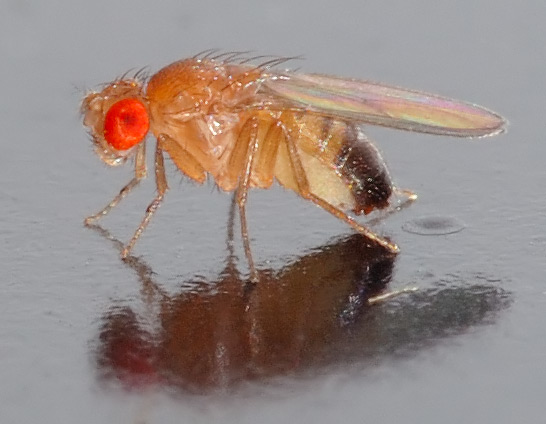Flies deliberate over difficult decisions; mutants deliberate longer
Ars Technica » Scientific Method 2014-05-22

"Easy decisions, based on clear evidence, will be fast; difficult decisions, based on uncertain evidence, will be slow." This spectacular insight was published this week not in the Journal of Duh, but in the illustrious Science.
The reason this isn’t Duh material is that the neural mechanisms underlying decision-making remain poorly characterized. Researchers at Oxford's Centre for Neural Circuits and Behavior have been trying to tease out the role that sensory information plays in decision-making using everyone’s favorite lab animal, the fruit fly. They’ve now found that flies are remarkably deliberative, and mutations can cause them to take longer to make decisions, especially difficult ones.
Flies were trained to avoid a specific concentration of 4-methylcyclohexanol, which to us has a menthol-like scent. They were then herded into narrow chambers with varying concentrations of the compound at the entrance, and a distasteful concentration farther inside.
Read 5 remaining paragraphs | Comments